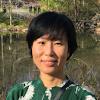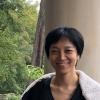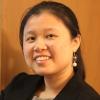In our next meeting on Friday, February 7, 2025 11:00 am to 12:30 pm EST, we will read Adam Bobbette's The Pulse of the Earth: Political Geology in Java, Preface, chapter 1, and Chapter 6 (total around 70 pages). Please join us if you can.
Consisting of scholars of diverse disciplinary backgrounds from across North America and Asia, this group explores systems of artisanal knowledge and their social, cultural, and political significance in Asia from 1400 to 1800. An approach toward early modern science and technology through the lens of craft and material objects can lend itself to the study of diverse historical topics in both macro and micro-scales. Our group intends to build a flexible methodology of craft and materiality that can be used in the investigation of a wide range of research topics including knowledge production, artisanal community, statecraft, infrastructure, networks, commerce, environment, and foodways. We focus on the modality of craft – such as embodiment, skills, and oral transmission – as well as the material attributes of things as the locus of epistemic tension and technological appropriation through the study of texts, objects, and bodily practices. In addition, promoting perspectives of transnational, comparative, and connected histories, the working group will foster discussions about early modern empires, oceanic and silkroad connections, capitalism, migration, and border and frontier studies, which, to varying degrees, integrate (Eur-)Asia beyond the boundaries of the political states.
Consortium Respectful Behavior Policy
Participants at Consortium activities will treat each other with respect and consideration to create a collegial, inclusive, and professional environment that is free from any form of discrimination, harassment, or retaliation.
Participants will avoid any inappropriate actions or statements based on individual characteristics such as age, race, religion, ethnicity, sexual orientation, gender identity, gender expression, marital status, nationality, political affiliation, ability status, educational background, or any other characteristic protected by law. Disruptive or harassing behavior of any kind will not be tolerated. Harassment includes but is not limited to inappropriate or intimidating behavior and language, unwelcome jokes or comments, unwanted touching or attention, offensive images, photography without permission, and stalking.
Participants may send reports or concerns about violations of this policy to conduct@chstm.org.
Upcoming Meetings
Friday, March 7, 2025, 11:00 am - 12:30 pm EST
Friday, April 4, 2025, 11:00 am - 12:30 pm EDT
TBA
Friday, May 2, 2025, 11:00 am - 12:30 pm EDT
TBA
Friday, June 6, 2025, 11:00 am - 12:30 pm EDT
TBA
Past Meetings
For this week, we will read and discuss:
Jakobina Arch, Bringing Whales Ashore: Oceans and the Environment of Early Modern Japan (Washington University Press, 2018), introduction (3-22) and chapter 3 (79-109).
For this week, we are going to read:
Kang, Hyeok Hweon. 2022. “Cooking Niter, Prototyping Nature: Saltpeter and Artisanal Experiment in Korea, 1592—1635.” Isis, January 1.
And we will workshop Susan Eberhard's dissertation chapter on silverware industry in Canton from the late 18th to early 19th centuries. Please email Susan Eberhard (seberhard@berkeley.edu) for the manuscript.
For this meeting, we are going to read:
Li, Yuhang. Becoming Guanyin: Artistic Devotion of Buddhist Women in Late Imperial China. New York: Columbia University Press, 2020. Chapter 3.
And we will workshop Yijun Wang's work-in-progress, "From Exotic Seafood to Superfood: Consumption and Knowledge Production of Edible Bird's Nest in the Context of Cross-Cultural Trade, 1600-1900." Please email Yijun Wang at yw741@nyu.edu to request the paper. Please request the paper by April 7 (Thursday), 12:00 pm.
Russell, Andrew L., and Vinsel, Lee. “After Innovation, A Turn to Maintenance.” Technology and Culture 59, no. 1 (January 2018): 1–25.
Reich, Aaron K. “In the Shadow of the Spirit Image: The Production, Consecration, and Enshrinement of a Daoist Statue in Northern Taiwan.” Journal of Chinese Religions 49: 2, 265-324 (November 2021).
Christine Guth, Craft Culture in Early Modern Japan (Berkeley: University of California Press, 2021), chapters 4-5.
Yulia Frumer, Making Time: Astronomical Time Measurement in Tokugawa Japan (University of Chicago Press, 2018), chapters 2 & 3.
For this meeting, we will discuss:
Anne Gerritsen. The City of Blue and White: Chinese Porcelain and the Early Modern World. Cambridge, UK: Cambridge University Press, 2020, Chatper 9.
Hodder, Ian. Entangled: An Archaeology of the Relationships between Humans and Things. Malden, MA: Wiley-Blackwell, 2012, Chapter 5.
In this meeting, we are going to read:
Sennett, Richard. "Arousing Tools." The Craftsman. New Haven, UNITED STATES: Yale University Press, 2008.
Barbieri-Low, Anthony. "Artisans in the Workshop." Artisans in Early Imperial China. First Edition edition. Seattle: University of Washington Press, 2007.
In this meeting, we are going to read two chapters to discuss the themes of "material" and "craft."
- Tim Ingold, “Materials against Materiality,” Archaeological Dialogues 14, no. 1 (June 2007): 1–16, https://doi.org/10.1017/S1380203807002127.
- Alexander Langlands, "Defining Craft," Cræft: An Inquiry Into the Origins and True Meaning of Traditional Crafts, First Edition (New York: W. W. Norton & Company, 2018).
Pagination
- Previous page
- Page 2
Group Conveners

Kyoungjin Bae
Kyoungjin Bae is James P. Storer assistant professor of Asian history at Kenyon College. She is an historian of everyday technology and material culture in early modern China. She received a Ph.D. in Global and International History from Columbia University and completed two postdoctoral fellowships at the Lieberthal-Rogel Center for Chinese Studies at the University of Michigan and the Institute for Humanities and Social Sciences at the University of Hong Kong. Her book manuscript examines Cantonese cabinet making and carpenters’ knowledge during the eighteenth century.

Yijun Wang
Yijun Wang is Assistant Professor of History at New York University as well as a 2020-2021 ACLS-Luce China Early Career fellow. She is a historian of material culture, history of technology and gender in early modern China. Yijun is interested in the connections between knowledge, technology, power, and capitalism. Her book manuscript examines the transmissions of tin mining technology and changes in statecraft in China from 1700 to the 1850s.

Yulian Wu
Yulian Wu is Associate Professor of the History Department at Michigan State University. She specializes in material culture, gender relations, and Manchu studies in early modern China. She published her first book, Luxurious Networks: Salt Merchants, Status, and Statecraft in Eighteenth-Century China in 2017 (Stanford University Press). Her current project titled explores jade production and consumption in eighteenth and nineteenth century China.